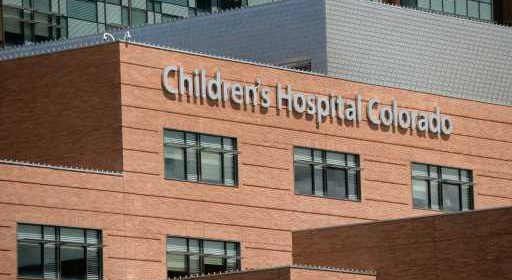Life-threatening coronavirus complication not seen in Colorado kids — but doctors are on alert

So far, there’s no sign a life-threatening syndrome that appears to be linked to the new coronavirus has hit Colorado children, but experts are looking for possible cases so they can be treated early.
Three children in New York have died and at least 73 have been hospitalized with the newly discovered condition, which has the unwieldy name “pediatric multisystem inflammatory syndrome temporally associated with SARS-COV-2,” or PIMS-TS.
Dozens of cases have been reported in Europe, and at least some appear to be linked to COVID-19 infections, though it’s possible others are a previously known illness that’s been misidentified.
Much remains unknown about how exactly PIMS-TS develops, but it’s related to the body’s attempts to fight an invader — in this case, the new coronavirus, said Dr. Sam Dominguez, a pediatric infectious disease specialist at Children’s Hospital Colorado. When a person is sick or injured, the body responds with inflammation, which we usually experience as pain, swelling and heat. Too much inflammation can damage blood vessels and organs, however.
PIMS-TS has been described as similar to Kawasaki disease, another disease caused by inflammation that only affects children, Dominguez said, but there are some important differences. Kawasaki disease tends to hit children younger than 5, while PIMS-TS seems at least as likely to hit older kids as toddlers. Also, not all kids with PIMS-TS are getting classic Kawasaki symptoms like a red tongue and lips, and they seem to be at higher risk of developing low blood pressure, he said.
If left untreated, both diseases can cause damage to the blood vessels supplying the heart, Dominguez said. In some cases, PIMS-TS also affects other organs like the liver or kidneys, he said.
Adults also can experience an immune overreaction to COVID-19 infections, but this particular syndrome has only been found in kids so far.
“We don’t really know why we’re seeing this in kids versus adults,” Dominguez said.
Parents don’t need to panic if their children show signs of a COVID-19 infection, because most kids only have minor symptoms, Dominguez said. At the same time, they should be on the lookout for symptoms associated with Kawasaki disease, as well as other signs a child needs medical help, he said.
Symptoms of Kawasaki disease include:
- Fever that lasts multiple days
- Rash
- Swelling in the hand and feet
- Red eyes
- Swollen lymph nodes in the neck
- Irritation and redness in the mouth, lips and throat
Other possible signs of the new syndrome include:
- Difficulty breathing
- Abdominal pain
- Persistent gastrointestinal problems like vomiting or diarrhea
- Lethargy
- Decreased appetite
Fortunately, while researchers are still learning about the new syndrome, there are treatments that appear to be effective, Dominguez said. Most hospitals are having good results treating kids with immunoglobulin — antibodies taken from many donors and given intravenously — while others are using steroids or other drugs to temporarily tamp down the immune response, he said.
“If your child needs medical attention, it is safe to bring them to the hospital,” he said. “We’re ready to care for (kids with the new syndrome) if and when they appear.”
Subscribe to bi-weekly newsletter to get health news sent straight to your inbox.
Source: Read Full Article